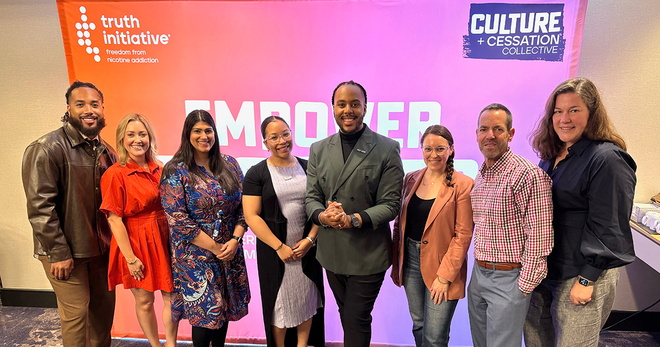Nicotine-Free Generation
Despite significant progress in reducing and de-normalizing commercial tobacco use in American society, it remains the country’s number one preventable cause of death and disease, causing more than 490,000 deaths each year and costing more than $240 billion annually in health care spending. Nicotine-Free Generation policies eliminate this toll over time by phasing out sales of tobacco or nicotine products. Nicotine-Free Generation policies have been implemented in Massachusetts, and have also been proposed in other states including California, Hawaii, Nevada, and Indiana, and internationally in countries such as Denmark and New Zealand.

What is a nicotine-free generation policy?
Nicotine-Free Generation policies raise the minimum legal age for tobacco product sales by one year every year to phase out legal commercial tobacco and nicotine sales, effectively making it so that no one born after a specified date can be legally sold tobacco or nicotine products. Initially referred to as Tobacco-Free Generation, these policies are now commonly called Nicotine-Free Generation to include all commercial tobacco and nicotine products such as e-cigarettes and oral nicotine pouches. Brookline, Massachusetts, paved the way by implementing the first Nicotine-Free Generation policy in the U.S. in 2021, and as of October 15, 2025, a total of 18 Massachusetts towns have adopted birthdate-based phase-out plans for sales of commercial tobacco products, with potentially promising results for public health.
TOBACCO 21
Before the federal law was established to raise the minimum age for sale of tobacco products from 18 to 21, many localities and states passed local laws to protect young people in their communities. The federal policy, known as Tobacco 21, was passed in 2019 and demonstrates how state and local policies can lead to federal uptake.
How it works:
- For current users: Those who already use tobacco or nicotine products can continue to be sold them indefinitely. The purchase, use, or possession of tobacco or nicotine is never criminalized in Nicotine-Free Generation policies.
- For young people: Over time, teens and young adults will be further removed in age from those who can be sold tobacco or nicotine, decreasing early nicotine initiation that can spark lifelong addiction.
- For retailers: Nicotine-Free Generation policies have a gradual impact, providing retailers with time to adjust to the market, which declines incrementally each year. Nicotine-Free Generation policies are unlikely to lead to black market sales, as current dependent users will maintain legal access to nicotine.
- Impact on public health: Nicotine-Free Generation policies curtail future demand by preventing the next generation from becoming addicted. They also advance health equity by addressing disparities in tobacco use, combatting the impact of decades of targeted marketing by the tobacco industry.
CASE STUDY: Brookline, Massachusetts
In 2021, Brookline became the first jurisdiction in the U.S. to implement a Nicotine-Free Generation policy (then called Tobacco-Free Generation), prohibiting tobacco sales to anyone born on or after January 1, 2000. Tobacco retailers attempted to challenge the law while it was in effect, but the Massachusetts Judicial Supreme Court dismissed the lawsuit in March 2024. This victory paved the way for other Massachusetts communities to follow suit, demonstrating the importance of setting a precedent to inspire momentum for similar policies. Early results indicate that the policy has been successful: only 3% of Brookline high school students reported past 30-day tobacco use in 2023, down from 5% in 2015 and 10% in 2013.
Ending the tobacco industry's influence for good
Nicotine-Free Generation is part of “Endgame,” a set of policies and strategies to move toward the end of commercial tobacco and nicotine use with the exception of FDA-approved medications. Policies to achieve this commercial market tobacco-free future decrease the industry's means of accessing customers; increase cessation interventions and services; and de-normalize all tobacco use, ultimately relegating it to a behavior of the past.
For more, read the Truth Initiative report “Game Changer” at truthinitiative.org/gamechanger.
More in tobacco prevention efforts
Want support quitting? Join EX Program
By clicking JOIN, you agree to the Terms, Text Message Terms and Privacy Policy.
Msg&Data rates may apply; msgs are automated.


